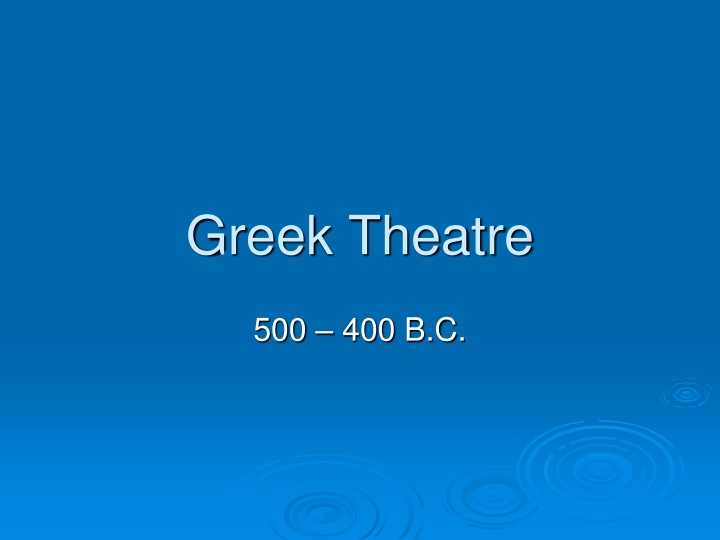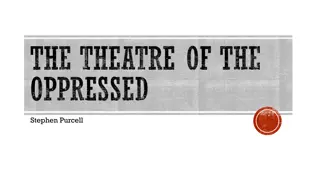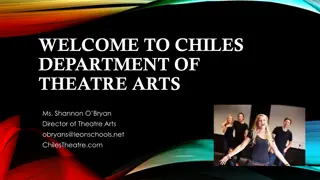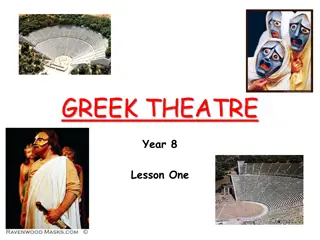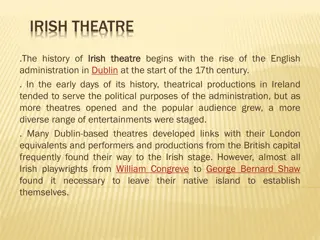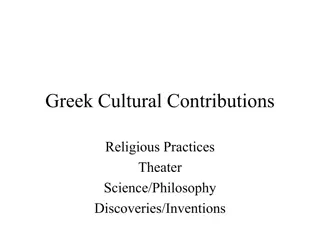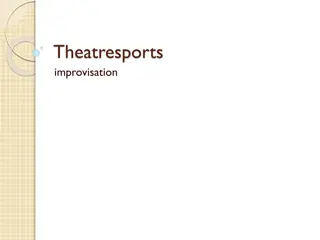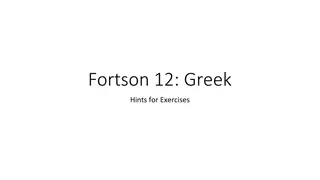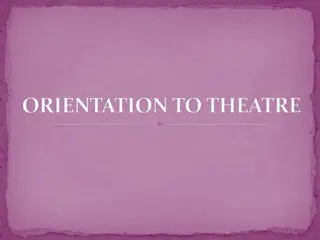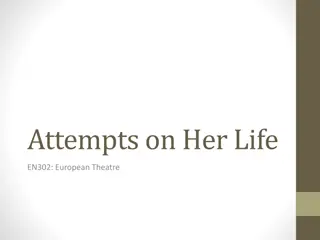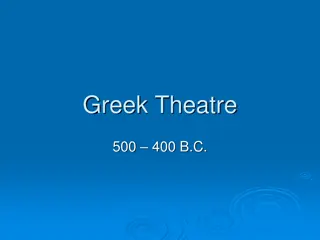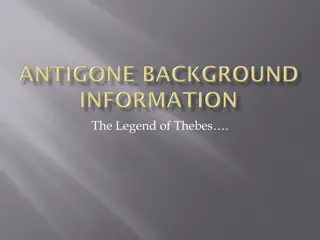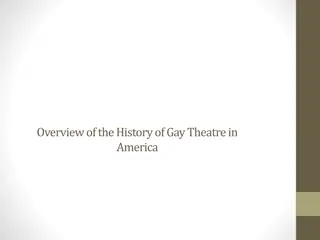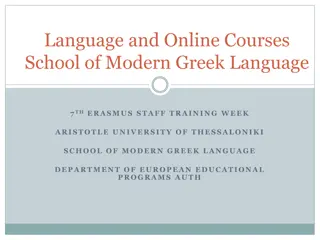Evolution of Greek Theatre: A Journey Through History and Tradition
Explore the rich history of Greek theatre, from its origins in religious rites to the grand festivals of tragedies during the Golden Age of Greece. Discover the significance of dramatic performances in honoring the gods, the structure of ancient Greek theatres, and the cultural impact of iconic plays and festivals.
Download Presentation

Please find below an Image/Link to download the presentation.
The content on the website is provided AS IS for your information and personal use only. It may not be sold, licensed, or shared on other websites without obtaining consent from the author.If you encounter any issues during the download, it is possible that the publisher has removed the file from their server.
You are allowed to download the files provided on this website for personal or commercial use, subject to the condition that they are used lawfully. All files are the property of their respective owners.
The content on the website is provided AS IS for your information and personal use only. It may not be sold, licensed, or shared on other websites without obtaining consent from the author.
E N D
Presentation Transcript
Greek Theatre 500 400 B.C.
The Dawn of Theatre ___________________ A Greek word that means to do or to act. _______________________ was born out of dance stories and pantomimes that told tribal traditions. Dances were performed to pacify unseen spirits. _____________________(the established form or order for a ceremony) developed. Out of this religious ritual, drama emerged!
The Golden Age of Greece The greatest tragedies of all time were written and performed. Also, outstanding achievement in _____________________________ and ________________________________ occurred.
A Festival of Theatre Greek theatre began with religious rites paying homage to the god of wine and fertility, _________________________. Much dancing and singing of hymns, called ____________________________, occurred. Tragedies developed from these rituals. Tragedy means __________________________________ in Greek
City Dionysia Festival A festival of tragedies. ___________________________ awarded to the best series of plays. Festival was a _______________________ and religious ceremony. ________________________ was suspended for a week, thus, everyone participated. State paid fee if anyone could not.
Men and women attended. Only __________________ acted in the plays, as it was the government rule. Festival lasted ______________________. 1stday consisted of a procession that honored Dionysus. People would drink, sing, and make merry! ________________________ the seeing place in Greek.
Four plays featured: a _____________________________ of tragedies and one comedy for _______________________________. Winner was awarded the coveted __________________________________ _______________ - group that comments on the action and helps the audience understand things they may not see.
Structure of Greek Theatres All plays performed __________________. ______________________________ the side of a mountain was scooped out into a bowl shape. Tiers of stone seats. Provided seating for up to _____________ Acting area ______________________ _______________________ small building where actors could change clothes
Drama was _______________________________ containing more speech than action. Actors used broad _________________________ and volume. To be seen, they wore thick-soled shoes, called cothurnus and a high headpiece, called an onkus. _____________________ would indicate character, and could help _______________________ the voice.
Standard Greek attire: tunic, long mantle, short cloak.
Scenery was painted on boards and placed against the __________________. Some small ______________________ were used (drums for thunder, etc.) _________________________________ means god in the machine. It was a mechanical device used for lowering and raising gods. Term is used today for any plot decide, such as the death of a rich uncle, that occurs unexpectedly to assist the main character in the convenient solution of a problem.
